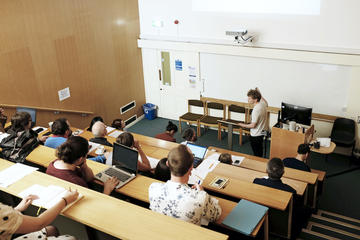Networking events are always worth investing your time in: you meet people, connect with them and establish beneficial relationships. Besides personal contacts, then, networking promotes the exchange of ideas, advice, feedback, and support – all in all, it’s invaluably rewarding. This was certainly the case of the first meeting of the Oxford-Charles University International Network in the History of Science, which took place in Oxford from 26 to 28 June 2019. If you missed it, you missed something.

Katerina Parizkova
We had both convivial and academic gatherings. Let’s start with the latter: the workshop hosted by the History Faculty and TORCH at Oxford on 27 June. For all of us that was a fantastic opportunity to learn about the variety of subjects being studied both at Oxford and Prague: we jumped from Aristotle to Alexander von Humboldt; from botany to biotypology. Entertaining presentations were followed by stimulating discussions even more compelling than usual as the people involved came from different backgrounds – philosophy, history, science – and contributed, so, with different approaches, methodologies, and sources.
The workshop was charming and – let’s come to them – the convivial parts were exhilarating, especially the participation in the HSMT Summer BBQ at the Oxford Centre for the History of Science, Medicine, and Technology. Good weather and great food were unforgettable ingredients of our friendly conversations, which ranged over various subjects. As for me, for example, I took the occasion to ask our guests about the astonishing Klementinum library in Prague – a place that now I want to visit, definitely. In return, I told the Prague students about the beautiful places they should visit at Oxford before leaving.
If the scope of this meeting was the establishment of a solid and friendly academic network between the two universities in the field of the history of science – well, mission accomplished. Making contact with new people is important if you want to build future collaborations and if you value the importance of sharing insights with an enlarged circle of academicians. Moreover, the convivial moments we spent together gave to this meeting a friendly and informal tone: they arrived as colleagues, they left as friends.